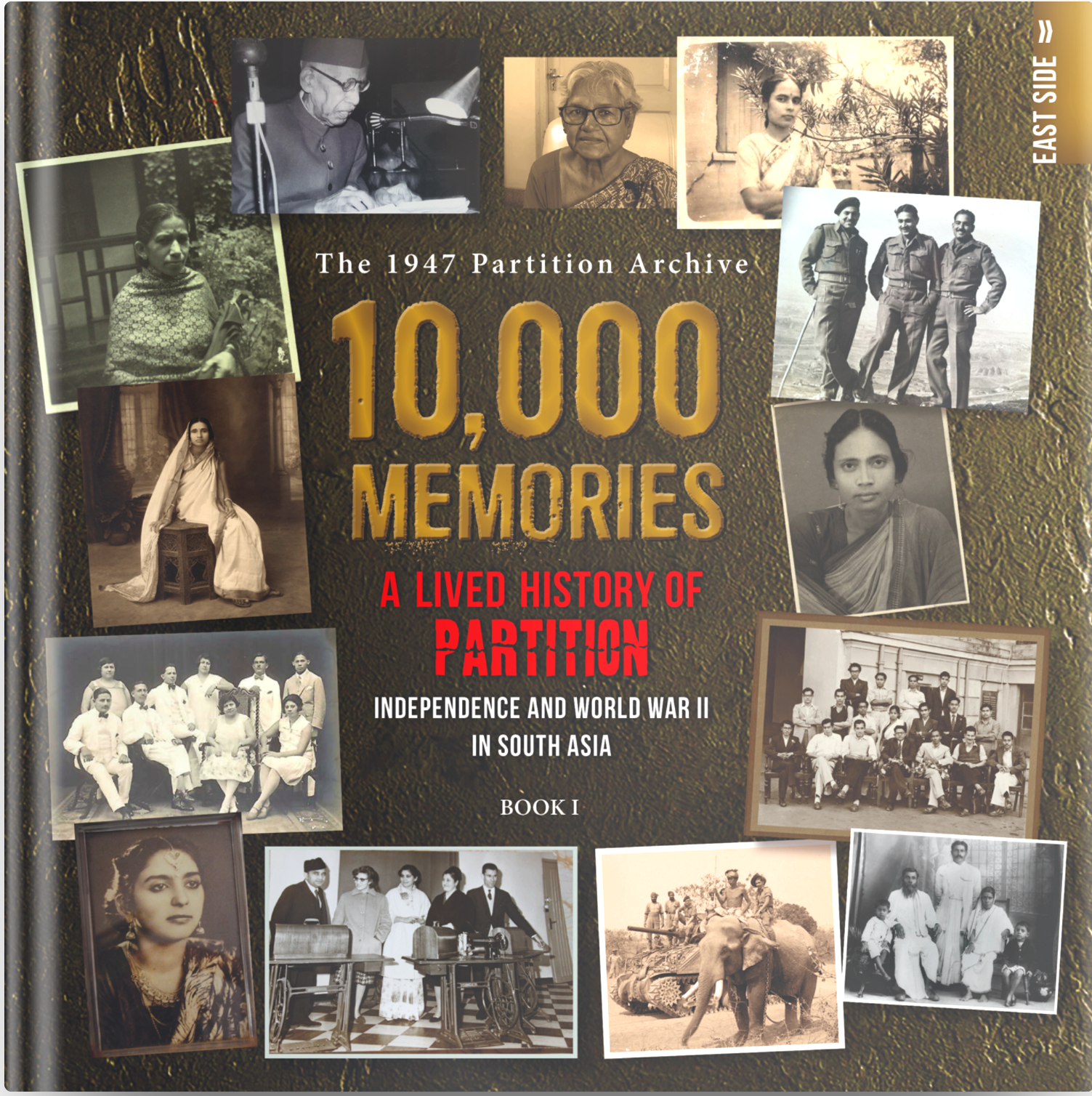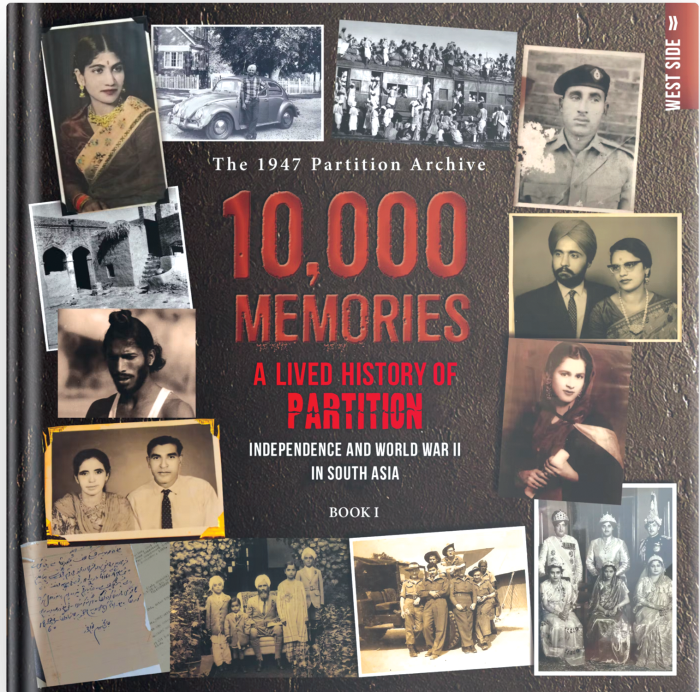10,000 MEMORIES
Based on the first and the largest pan-South Asian oral history survey ever conducted, 10,000 Memories tells the story of Partition, World War II and Independence in the mid-20th century Indian subcontinent through hundreds of individual experiences. Book 1, the inaugural volume of the 10,000 Memories series, draws on stories from Afghanistan in the west to Myanmar in the east, and Kashmir in the north to Kerala in the south, to provide vivid insights into this defining moment in world history unlike any previously written. 10,000 Memories combines stunning visuals, featuring over 1,000 photographs, with poignant quotes on each page for the casual browser, while longer oral history summaries (stories) on each page help satiate curiosities of the voracious reader. The stories are evocative and bring history to life. You may cry, you may find yourself laughing uncontrollably or simply find yourself spellbound.
All buyers will be notified when deliveries begin
Pre-order Now
Featuring
Early Praise
"10,000 Memories is an extraordinary record that brings together the oral histories of ordinary people who were impacted by the Partition of the Indian subcontinent. It offers a unique, tangible, textured, and powerful archive of the lived experience of those who endured the turbulent history of the subcontinent. Conveyed in an innovative format, the book carries an astonishing visual narrative that layers over the wrenching oral histories recounted by the survivors. There is simply no other book that captures the breadth and depth of the long Partition with the vitality, verve, and creativity of 10,000 Memories."
"10,000 Memories is a stunning and captivating portrayal of 20th century South Asia. Through a thoughtful use of visuals and stories spread across vast geographies and varied experiences, it brings history alive. This nuanced and powerful storytelling is critical in today's world where the complexity of history and of people's life stories are increasingly simplified, homogenized and packaged. 10,000 Memories is an essential read and provides brilliant insights into the lives of everyday history-makers."
"This a beautifully illustrated book, but is far more than merely a coffee table addition. The collected narratives add to the growing understanding of the 1947 Partition of British India as being a complex and multi-layered event with marked regional, gendered, class and community differences. Everyone had a Partition story unique to themselves. There was no universal migrant experience. All communities had their victims, and experiences of suffering. I warmly recommend the volume which will be of interest not only to those grappling with their family and collective pasts, but younger generations who are searching for both identity and understanding of the contemporary South Asian world. The book is both accessible for the general reader and provides a wealth of material for those who study, teach and learn about the seminal event in modern South Asian History.
10,000 Memories looks impressive with its content, photos, design and most importantly, human stories. It's a commendable collection of memories from Partition survivors. Interestingly, following the trends of Partition historiography, oral history collections were initially western border or Punjab-centric. But through this project, The 1947 Partition Achieve has curated a path-breaking work by incorporating narratives from respondents settled down in locations far away from the core refugee settlement areas of Punjab and West Bengal. One of the chief contributions of this collection is to make the voices of those refugees, who settled in peripheral areas, heard to the outside world. This is especially so for the Northeastern Indian states bordering Bengal. This brilliant initiative represents the 'total history' of Partition and the diverse experiences of uprooted refugees.
Based on an exciting oral history project, 10, 000 Memories, the first book in a series by The 1947 Partition Archive led by Guneeta Singh Bhalla, is the result of many years of hard labor that includes interviews conducted by hundreds of oral historians in the Indian subcontinent at the pan-South Asia level. In contrast to the elite history of Partition based on government records and other contemporary sources, this novel study offers a fresh approach to the living history of those surviving human actors who suffered because of that unforgettable event of geo-political significance. Singh Bhalla and her team have done a herculean job. It is a pleasure to read, and it is certain to become a classic study of Partition.

east side. west side.
To give equal weight to the east and west, 10,000 Memories can be opened from either cover. There is no front or back, but rather the eastern cover and the western cover. The book opens in Kandahar, Afghanistan on one side and Yangon, Myanmar on the other, meeting in the middle at the Deccan plateau. Readers will journey across the subcontinent from one end to the other, crossing rivers and mountain passes, experiencing the 20th century vicariously through stories. 10,000 Memories is designed to be equally appealing as a coffee table book, as a textbook accompaniment in the classroom, or to grace the shelves of the advanced scholarly researcher. It is for everyone, the reader and the non-reader; the expert and the non-expert.

